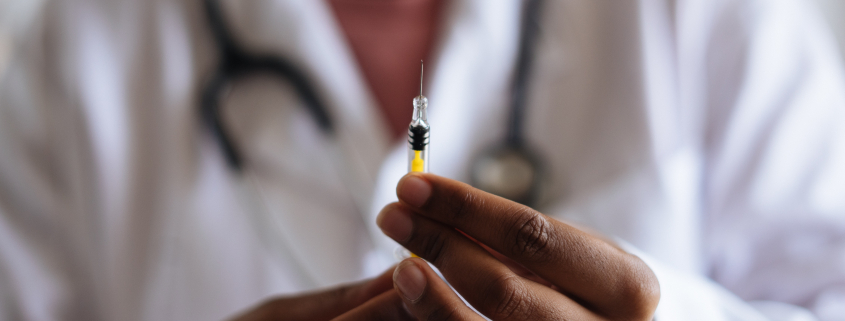The US can learn from Israel’s vaccination drive

Israel has been leading the world in vaccinating its population. Fifty-nine doses have been given for every 100 people, whereas in the United States, just 10 doses have been given for every 100 people. Furthermore, 75% of Israelis over the age of 60 have gotten at least one shot. The small Middle Eastern country is far outpacing the U.S. in rolling out the vaccine, and this speaks to both the success of their existing public health infrastructure and the failure of ours.
Israel was able to secure vaccines quickly by selling themselves as the perfect pilot program for pharmaceutical companies to test their rollout strategies. Their public health infrastructure is what makes them the perfect pilot program.
The country has four nonprofit health maintenance organizations, and every Israeli is part of one of them. This ensures that all Israelis have at least some form of health care coverage. These HMOs do not just insure Israelis — they also operate clinics and provide doctors. The nationalistic quality of this health care system and the fact every Israeli essentially belongs to it has made it extremely popular. Seventy-five percent of the country has trust in their HMO-provided physician and 90% of Israelis are satisfied with their plan.
In addition to its popularity, Israel’s health care system is the fourth most efficient in the world. The streamlined infrastructure includes a single electronic medical record system, making it much easier to execute a vaccine distribution campaign. This is because government and public health officials can easily see the progress of vaccinations for different demographic groups, while individuals can login to their HMO account and see all the local vaccination centers and book an appointment.
The situation in the U.S. is vastly different. The two things Israel’s health care infrastructure excels in — trust and efficiency — are what the U.S. health care system lacks.
According to a poll from the Pew Research Center in December, over 20% of Americans are completely unwilling to take the vaccine and an additional 19% said they will probably not take it. Meanwhile, only 9% of Israelis say they will not take the vaccine.
This lack of trust in public health systems in the U.S. has only served to slow down the vaccination process and lack of efficiency has accentuated it. Throughout Operation Warp Speed, which had the main objective of procuring vaccines for Americans, there was never a serious effort made to prepare and plan for vaccine distribution.
This resulted in widespread confusion over eligibility requirements, difficulty securing appointments to become inoculated and thousands of doses being thrown out a day. These problems are directly caused by the weakness of our public health infrastructure.
The U.S. lacks a centralized coronavirus vaccine website where people can see all the potential appointments in their area. This means people have to pour through dozens of websites a day in order to find an available vaccine. This also makes it more difficult for the government to track who has gotten vaccinated and at what rates different demographic groups are receiving the vaccine.
As a result of this lack of efficiency and trust, only 8% of Americans have received at least one dose of the vaccine so far, and there are signs that the distribution has been inequitable among different income and racial groups.
The slow pace of the U.S. coronavirus vaccine rollout speaks to the need to build upon the country’s existing public health infrastructure and the people’s trust in it. Health care policy is an ongoing debate in this country, and the coronavirus crisis points to the need for a more centralized, unified system in order to tackle issues of trust and inefficiency in public health.

